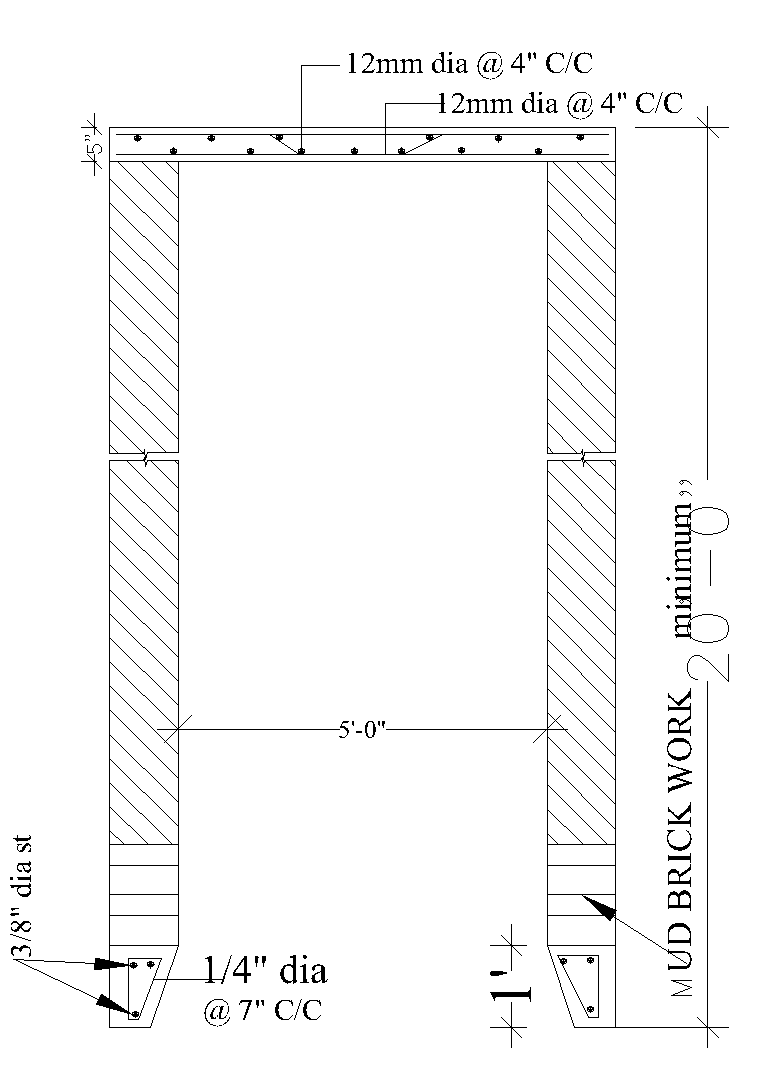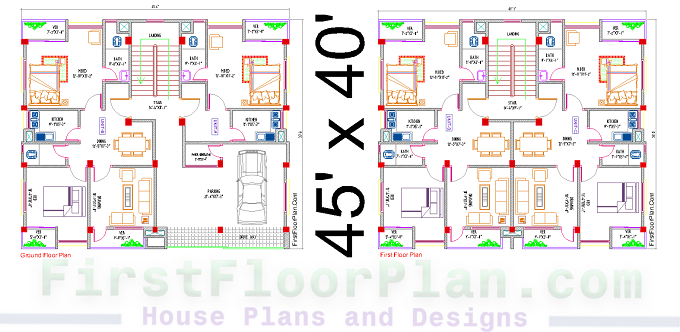 |
| Septic Tank and Soak Pit Design |
What is Septic Tank?
In many cities it is possible to maintain the sewer system, which routes the sewage from the septic tank of each home to a treatment plant. In other places, where they still do not have this resource at their disposal, it is used as a sewage treatment system for the black well, also known as the blind well.But there is a third system of drainage of the waste that is produced in the house and is thrown by the drains, this is the septic tank. The function of this system is to take the waters that arrive from the house and, thanks to the action of gravity, the solid is deposited in the bottom and the fat floats. In the middle of these elements, liquid accumulates, which is drained by means of a pipe towards the ground, where the bacteria will give an account of the organic elements before they reach places such as napes or a natural water channel. There are three types of septic tanks: concrete septic tanks, steel septic tanks and concrete septic tanks. All have their own maintenance methods and their functions are the same.
 |
| Plan of Septic Tank |
To know when a septic tank has problems, you have to be attentive to one of the following things: sunken land around the place where the tank is located, residual sewage that begins to leave the ground or that sewage flows out . In the event that any of these things happen, you should immediately call a company specializing in the drainage of black wells or septic tank drains. This is the first step in finding the solution to the problem. First, because it prevents someone from falling into the full well, and on the other hand, you cannot examine a well with liquid inside.
What is the soak pit?
 |
| Section of Soak Pit |
The soak pit is an ordinary well of any shape with a minimum transverse dimension of 0.10 m and 1 m depth below the inverted level of the inlet tube. The pit may be lined with stone, brick or concentrated blocks with dry and open joints. The pit is usually filled with a layer of loose stones, brick bats and brick ballast. The pit may be covered with an RCC slab. The soak pit is a pit through which the effluent is allowed to filter or seep into the surrounding soil. The effluent can be removed in a soak pit. It must be at a minimum distance of 18 m and preferably 30 m from any source of drinking water, as pit as even drill pit to mitigate the possibility of bacterial contamination of the water supply. It should also be away from the nearest habitable building at least 6 m, to avoid damage to the structure, especially the foundations.
How exactly does a septic tank work?
A sewer drain field and a septic tank make up a small sewer system. A septic tank is basically a rectangular container underground for sewage. It is waterproof, made of cement, and consists of tanks that are divided into chambers. The first chamber has twice the volume of the second and most of the organic solid matter, known as mud, is established here. The second chamber purifies wastewater.
 The septic tank collects sewage from toilets, showers, laundry rooms, etc. Due to the lack of current, the sludge is established at the bottom of the tank quickly. Anaerobic digestion of bacteria in the mud leads to the generation of methane and carbon dioxide, the mud stabilizes and no longer rots. The particles of stabilized sludge remain, some float on top as scum. A septic tank should be constructed in such a way that there is maximum contact time with the microorganisms in order to speed up the digestion of the mud. This is achieved by placing the inlet, drain, and outlet diagonally to each other and making streams flow in vertically placed pipes.
The septic tank collects sewage from toilets, showers, laundry rooms, etc. Due to the lack of current, the sludge is established at the bottom of the tank quickly. Anaerobic digestion of bacteria in the mud leads to the generation of methane and carbon dioxide, the mud stabilizes and no longer rots. The particles of stabilized sludge remain, some float on top as scum. A septic tank should be constructed in such a way that there is maximum contact time with the microorganisms in order to speed up the digestion of the mud. This is achieved by placing the inlet, drain, and outlet diagonally to each other and making streams flow in vertically placed pipes.
Semi-purified water moves to the second chamber through the drains that are constructed in such a way that the upward movement of the water prevents larger particles from flowing into the second chamber. The feeding, digestion, and establishment of organic matter continues in the second chamber. The retention time in the second chamber is half that of the first chamber because of its size and the fact that the amount of organic matter to be treated here is less. The exit is built in the diagonal corner to the drain.The treated wastewater is directed to a drainage field, also known as a filtration field, where all the impurities that still exist naturally break down, and the water is absorbed by the plant's root system or can even pass into Be part of the groundwater. The large size of the drainage field is necessary if the soil is not very porous. A septic system can fully function through the use of gravitational forces, in some places, however, a pump may be necessary to overcome topographic limitations.
The sludge generation rate in septic tanks is around 0.05 cubic meters per year per individual. Septic tanks must be emptied once every few years so that there is enough space for microorganisms to attack sewage and for mud to settle. The septic tank can be emptied every 5 to 7 years, depending on the amount of wastewater it processes.
The tank is emptied using an extractor truck operated by trained personnel. The sludge that is sucked with the extractor truck is thrown into sewage treatment plants, sanitary landfills, or mud drying beds.Properly digested sludge can be used as a natural fertilizer, this can only be achieved if fresh water is not added to the tank for at least a week. The design of the septic tank should be such that wastewater always flows in its direction and that there are no short circuits in the water flow.
T-connectors with inlet and outlet openings below the water level must be used for inlet, drain and outlet. This prevents floating slag from clogging the tubes. A grease trap, or crusher, must be provided for the wastewater inlet pipe.
To know Septic Tank and Soak Pit Designs details here..
Download File: Septic Tank and Soak Well Drawing











%20House%20plan%20with%207%20storey%20Apartmen%20building%20Structural%20desing%20%20DWG%20&%20PDF.jpg)


